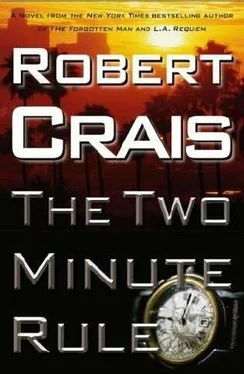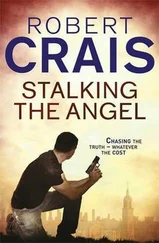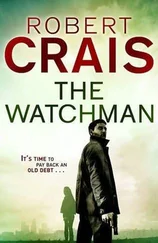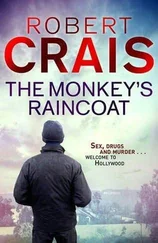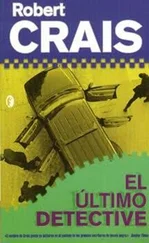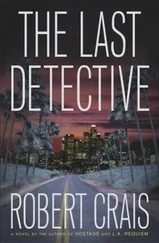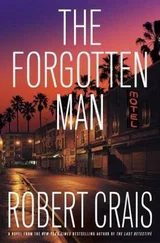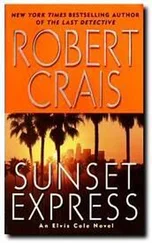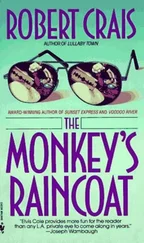“Katherine Pollard. I was on the Bank Squad with the FBI. We worked together a few years ago.”
She rattled off the names of several of the serial bandits they had worked: the Major League Bandit, the Dolly Parton Bandit, the Munchkin Bandits. Serial bandits were given names when they were unknown subjects because the names made them easier to talk about. The Major League Bandit had always worn a Dodgers cap; the Dolly Parton Bandit, one of only two female bank bandits Pollard had worked, had been an ex-stripper with huge breasts; and the Munchkin Bandits had been a takeover team of little people.
Fitch said, “Oh, sure, I remember you. I heard you quit the job.”
“That’s right. Listen, I have a question for you about Marchenko and Parsons. You got a minute?”
“They’re dead.”
“I know. Are you guys still running an open case?”
Fitch hesitated, and Pollard knew this to be a bad sign. Though the FBI and the LAPD bank teams enjoyed a great working relationship, the rules stated you didn’t share information with private citizens.
He said, “Are you back with the Feeb?”
“No. I’m making a personal inquiry.”
“What does that mean, personal inquiry? Who are you working for?”
“I’m not working for anyone-I’m making an inquiry for a friend. I want to find out if the four officers killed last week were working on Marchenko and Parsons.”
Pollard could almost see his eyes roll by the tone that came to his voice.
“Oh, now I get it. Holman’s father. That guy is being a real pain in the ass.”
“He lost his son.”
“Listen, how in hell did he get you involved in this?”
“I put him in prison.”
Fitch laughed, but then his laughter stopped as if he had flipped a switch.
“I don’t know what Holman is talking about and I can’t answer your questions. You’re a civilian.”
“Holman’s son told his wife he was working on something.”
“Marchenko and Parsons are dead. Don’t call me again, ex-Agent Pollard.”
The phone went dead in her ear.
Pollard sat with her dead phone and cold donut, reviewing their conversation. Fitch had repeatedly told her Marchenko and Parsons were dead, but he hadn’t denied that an investigation was ongoing. She wondered why and thought she might know how to find out. She opened her cell phone again and called April Sanders.
“Special Agent Sanders.”
“Guess where I am.”
Sanders lowered her voice. This had always been Sanders’ habit when taking a personal call. They hadn’t spoken since Marty’s death and Pollard was pleased to see that Sanders hadn’t changed.
“Oh my God-is that really you?”
“Are you in the office?”
“Yeah, but not much longer. Are you here?”
“I’m at Stan’s with your name on a dozen donuts. Send down a badge.”
The Federal Building in Westwood was headquarters for the eleven hundred FBI agents serving Los Angeles and the surrounding counties. It was a single steel-and-glass tower set amid acres of parking lots on some of the most expensive real estate in America. The agents often joked that the United States could retire its national debt by converting their offices to condos.
Pollard parked in the civilian lot, then cleared the lobby security station to wait for her escort. It was no longer enough for someone to call down a pass. Pollard couldn’t just board an elevator and punch the button for any of the eight floors occupied by the FBI; visitors and agents had to swipe their security cards and enter a valid badge number before the elevator would move.
A few moments later an elevator opened and a civilian employee stepped out. He recognized Pollard by the box from Stan’s and held the door.
“Miss Pollard?”
“That’s me.”
“You going to Banks, right?”
“That’s right.”
Officially, it was known as the Federal Bureau of Investigation, Los Angeles Field Office, Bank Squad, but the agents who worked there called it Banks. Pollard’s escort showed her to the thirteenth floor, then let her through a code-locked door. Pollard hadn’t been through the door in eight years. She felt as if she had never left.
The Bank Squad occupied a large modern office space cut into spacious cubicles by sea-green partitions. The offices were neat, clean, and corporate, and might have belonged to an insurance firm or a FORTUNE 500 company except for the mug shots of L.A.’s ten most wanted bank robbers hanging on the wall. Pollard smiled when she saw the mug shots. Someone had stuck Post-it notes on the top three suspects, naming them Larry, Moe, and Curly.
Los Angeles and the surrounding seven counties were hit by an average of more than six hundred bank robberies every year-which meant three bank robberies each and every business day, five days per week, fifty-two weeks per year (bank robbers kicked back on Saturday and Sunday when most banks were closed). So many banks were being robbed that most of the ten elite Special Agents who worked Banks were always out in the field at any given time and today was no different. Pollard saw only three people when she entered. A bald, light-skinned African-American agent named Bill Cecil was locked in conversation with a young agent Pollard didn’t recognize. Cecil smiled when he saw her as April Sanders rushed forward.
Sanders, looking panicked, covered her mouth in case lip-readers were watching. Sanders was a profound paranoid. She believed her calls were monitored, her e-mails were read, and the women’s bathroom was bugged. She believed the men’s bathroom was bugged, too, but that didn’t concern her.
She whispered, “I should have warned you. Leeds is here.”
Christopher Leeds was the Bank Squad supervisor. He had run the squad with a brilliant hand for almost twenty years.
Pollard said, “You don’t have to whisper. I’m okay with Leeds.”
“Shh!”
“No one’s listening, April.”
They both glanced around to find Cecil and his partner cupping their ears, listening. Pollard laughed.
“Stop it, Big Bill.”
Big Bill Cecil slowly rose to his feet. Cecil was not a tall man; he was called Big Bill because he was wide. He had been on the Bank Squad longer than anyone except Leeds.
“Good to see you, lady. How are those babies?”
Cecil had always called her lady. When Pollard first joined the squad, Leeds-then as now-was as much a nightmare tyrant as he was brilliant. Cecil had taken her under his wing, counseled and consoled her, and taught her how to survive Leeds’ exacting demands. Cecil was one of the kindest men she had ever known.
“They’re good, Bill, thanks. You’re getting fat.”
Cecil eyed the donut box.
“I’m about to get fatter. One of those has my name on it, I hope.”
Pollard held the box for Cecil and his partner, who introduced himself as Kevin Delaney.
They were still chatting when Leeds came around the corner. Delaney immediately returned to his desk and Sanders went back to her cubicle. Cecil, who was ripe for his pension, turned his letterbox smile on his boss.
“Hey, Chris. Look who came to visit.”
Leeds was a tall humorless man known for immaculate suits and his brilliance in patterning serial bandits. Serial robbers were hunted in much the same way as serial killers. They were profiled to establish their patterns, and once their patterns were recognized, predictions were made as to when and where they would strike again. Leeds was a legendary profiler. Banks were his passion, and the agents who worked on the squad were his handpicked children. Everyone arrived before him; no one left until Leeds left. And Leeds rarely left. The workload was horrendous, but the FBI’s L.A. Bank Squad was the top of the game, and Leeds knew it. Working with the squad was an honor. When Pollard resigned, Leeds had taken it as a personal rejection. The day she cleared her desk, he refused to speak to her.
Читать дальше
